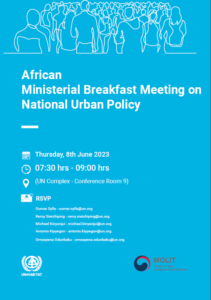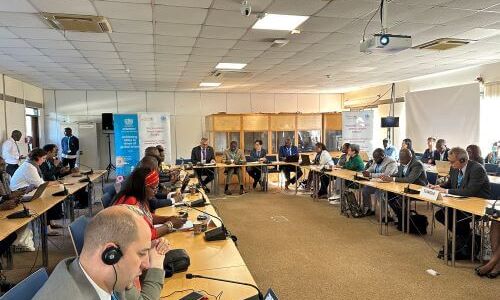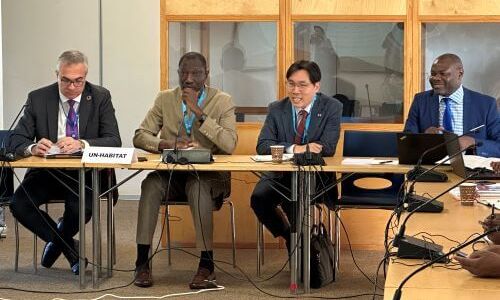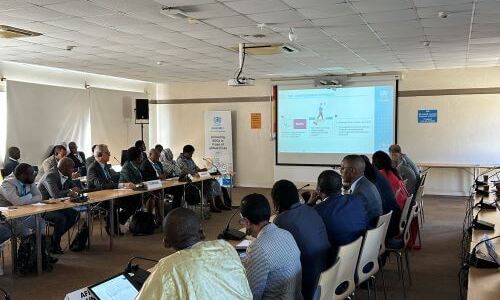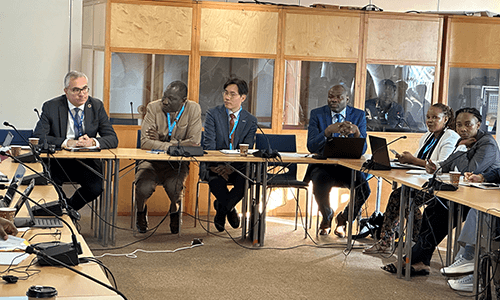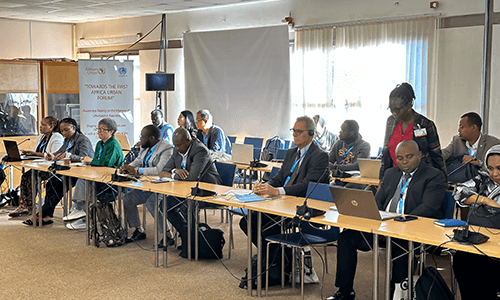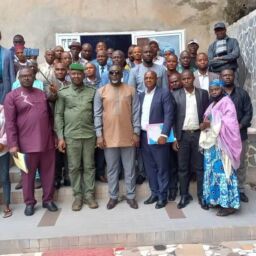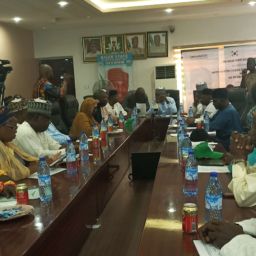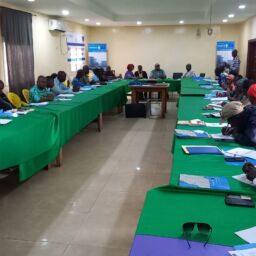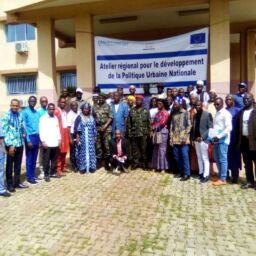African Ministerial Session on National Urban Policy
UNHA2, Nairobi | 8th June 2023
Urbanization in Africa is progressing rapidly. With an urban growth rate of 3.4 per cent, currently, 44 per cent of the region’s population resides in urban areas. By 2035, the region will have half of its population living in cities and will be predominantly urban by 2050 with six in ten persons living in urban areas. National Urban Policies (NUP) provide an effective opportunity capitalize on the potential of urbanization as well as mitigate its negative externalities in Africa. It’s not only an integrated development tool to create common vision for urbanization but also an overarching framework that supports implementation of the Sustainable Development Goals (SDGs) and the New Urban Agenda (NUA)
Against this backdrop, African Ministers and other high-level government representatives joined other diverse participants on 8th June 2023, in a session on urban policies in Africa.
Held along the sidelines of the United Nations Habitat Assembly, the session offered a unique opportunity to share experiences on how National Urban Policies are providing the required coordination mechanism needed to promote equitable urban development in Africa.
Participants underscored their experiences on using Urban Policy to unlock financing opportunities, enhance local economic growth and ensure equitable quality of life for all while protecting the environment.
The session featured several speakers who shared a wealth of knowledge and experiences in NUP development and implementation, both at the country level and from the development partners’ view.
Michal Mlynar – UN-Habitat Deputy Executive Director had some key points from his remarks:

Oumar Sylla: Director, Regional Office for Africa, shared his thoughts on National Urban Policies (NUPs) in Africa, where he mentioned:

Remy Sietchiping: Chief, Policy, Legislation and Governance Section, UN-Habitat, made a presentation on an Outlook of Africa in Relation to NUP as from the survey done in 2020 as follows:



